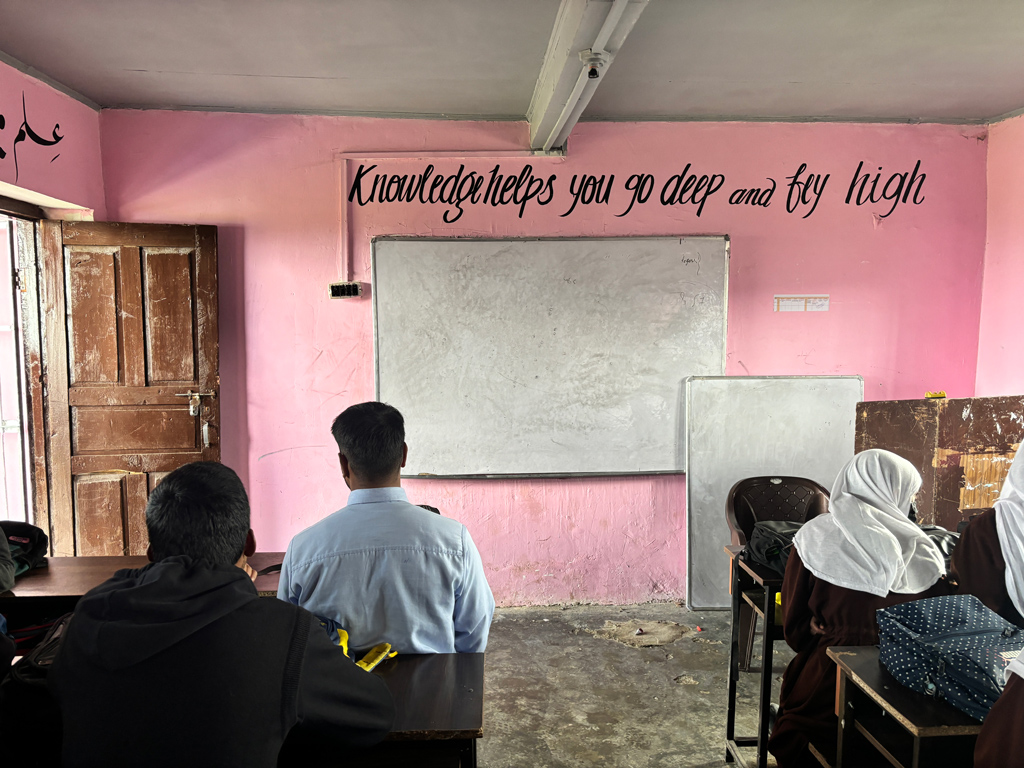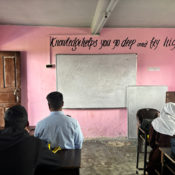
Orphaned and Overlooked
4 siblings struggle to stay in school, struggle for meals
When Afshana (name changed) speaks about her younger sister Mehnoor (Name Changed), her
voice is steady but the burden she carries is anything but light. “We are four siblings,” she says,
sitting on a worn-out rug inside a dimly lit room in their modest dwelling in a small village in Baramulla. “First, our father passed away from a heart attack. Shocked, our mother died the same way. After that, there was no one left to care for us.”
Afshana, barely out of her teens herself, has stepped into the role of caretaker, protector, and motivator for her younger siblings. Their world, once shaped by the love and labour of two parents, now revolves around survival: the next meal, the next notebook, the next day at school. According to their neighbours, their father needed Rs 4 lakh for heart surgery, a sum that was simply unattainable.
“He couldn’t afford the treatment, so he died,” a neighbor said, standing outside the children’s home. “When I visited them last week, they didn’t even have a grain of rice. Nothing.” Their maternal grandparents have since moved in, trying to fill a void no elder can truly bridge. They
offer comfort and some measure of stability, but the absence of financial resources looms large.
In a region where poverty often goes unseen or unspoken, the plight of these four orphaned children is one that community members are now rallying to highlight.
It was through the intervention of local elders and the Human Welfare Voluntary Organisation
(HWVO) that the children’s case came to light. “These children are vulnerable to dropping out of school,” said Nayeem Ahmad, a social worker with HWVO. “They often go without food. They cannot afford even basic supplies like pens, pencils, schoolbags. They want to study. But without help, their dreams will die quietly.” The siblings’ story is not unique, but it is urgent. Without a steady source of income or government aid, and with no land or house in their name, the children rely entirely on the kindness of neighbours and the occasional intervention of non-profits.
Mehnoor and her siblings attend school sporadically – days when hunger doesn’t overwhelm learning, when the walk isn’t too cold or too long, and when the anxiety of poverty doesn’t eclipse the possibility of a future. “We just want to study,” Afshana repeats, her voice firm
despite the odds. “We should be able to finish our education.”
In Kashmir, where orphaned children often slip through the cracks of an already strained system, their story is a reminder: hope can flicker in the bleakest places, but it needs fuel – support, resources, and the belief that their lives matter. For such children, every rupee, every gesture of solidarity is a brick in the foundation of their future. “These are innocent children,” a neighbour said, tears welling in her eyes. “They didn’t ask for this life. But with a little help, they might still have a chance.”


